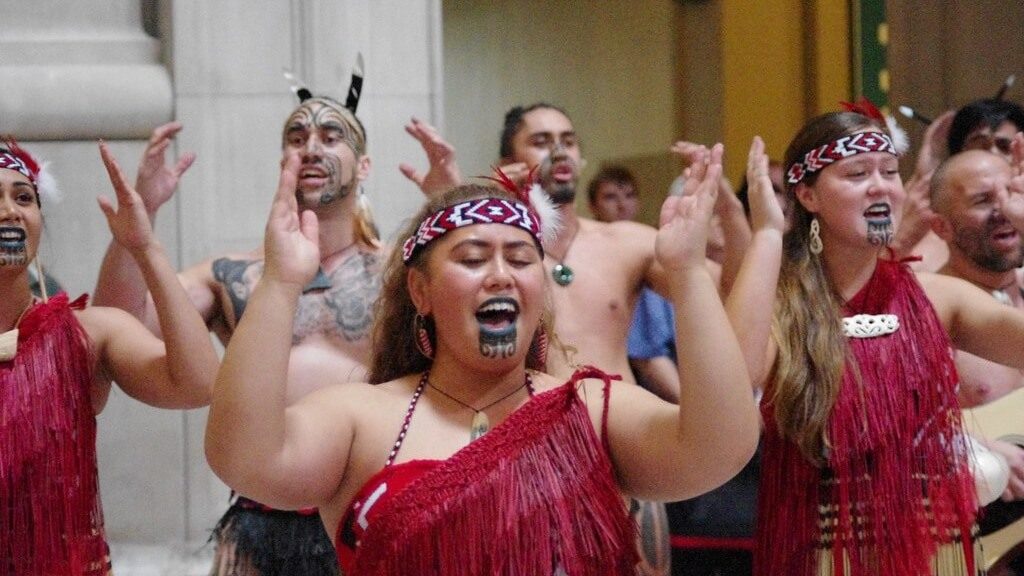Updated July 17, 2019. Māori communities across New Zealand are connecting with veganism.
According to the Spinoff, more and more Māori people are shifting away from meat and dairy in a bid to “live healthier and more sustainable lives.”
Raniera Rewiri, who runs a vegan catering business, refers to himself as the Plant-Based Māori. He is often seen as the most public face of Māori veganism, says the Spinoff, and was inspired to go vegan for the protection of the environment.
Rewiri says the story is the same for many Māori people, who see avoiding meat and dairy as a stand against animal agriculture.
Standing Against Dairy

For some, it goes even deeper.
Polynesian settlers discovered New Zealand around 700 years ago, developing Māori culture. In the mid-1800s, it was colonized by European settlers. Many dairy farms are now situated on confiscated Māori land, so many members of the communities now see living plant-based as a stand against colonization.
“In the Māori worldview, the rivers, lakes, and forests are our ancestors. They are part of us and we are part of them,” Lauren O’Connell Rapira, a Māori woman and vegan of four years, told The Spinoff. “Right now, our rivers and forests are sick, and intensive animal agriculture, and especially dairy in New Zealand, have a played a huge role in that.”
She added, “by not eating meat and dairy, I don’t contribute as much to the sickness of my ancestors.”
Rapira is not alone in her belief that buying into the meat and dairy industry is a contradiction of Māori principles. Waimirirangi Koopu-Stone also spoke to The Spinoff about veganism and transitioning to a harm-free lifestyle.
“The first thing I acknowledge when I introduce myself are the mountains and sacred waterways in which I descend. I draw strength from my many waterways: my awa, Waikato; my moana, Mokau; and I source energy from my many maunga,” she said.
“These elements make up my tuakiri as a young Māori woman,” she added. “It’s hypocritical to me to hold these aspects of my being at such high stature, and turn around and consciously make a choice that is harmful to them.”


